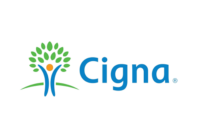OCD is a multifaceted psychiatric condition distinguished not just by idiosyncrasies or a proclivity for tidiness but by profound and frequently agonizing fixations and compulsions that greatly impede everyday functioning. An effective treatment approach usually involves the use of drugs, such as SSRIs, together with psychotherapy, particularly cognitive behavioral therapy and exposure and response prevention. Alternative treatments and lifestyle modifications also have a supporting function, improving therapeutic results and aiding in the holistic management of symptoms. Comprehending and dealing with this disorder requires acknowledging its significant influence on an individual's life and the significance of customized therapy methods.
6 min to read
Effective OCD Treatment: Proven Strategies for Regaining Control
OCD is a serious mental illness characterized by unwanted thoughts and behaviors that happen over and over again. These OCD signs can make it hard to work, have relationships, and be healthy in general. The various OCD treatment options must be understood by patients. Psychological treatments and drugs that work well help control symptoms and get individuals back in charge.
What is OCD?
Obsessions and compulsions are two characteristics of the mental illness known as OCD. Obsessions are unwanted and recurrent thoughts, feelings, or images that a person feels compelled to do. People often do the compulsions to calm down from the nervousness that comes with obsessions or to avoid something they fear happening, but they are either ridiculous or too much.
Symptoms of OCD are different, but some examples are worrying about getting sick, trying to be perfect, or having violent or horrible thoughts about killing yourself or others. Some compulsions that are similar are cleaning, sorting, counting, and prayer. Thoughts that come back to people with OCD, which can be violent or sexual, cause them to worry and suffer because they feel wrong.
People often think that people with OCD are just quirky or like things to be clean and in order. In reality, OCD can make it very hard to do normal things and enjoy life.
Another myth is that people with OCD don't notice when they're acting in a strange way.

Most people with OCD know that their urges and compulsions are not reasonable, but they feel helpless to stop them.
To fully understand how OCD affects people, it's important to see it as more than just a need for order or routine.
Conventional treatments for OCD
Psychotherapy and medications are common ways to treat OCD. Selective serotonin reuptake inhibitors (SSRIs) are widely used to ease symptoms by changing the chemical balance in the brain, which lowers urges and cravings.
It's helpful to get therapy, especially cognitive behavioral treatment (CBT) for OCD. CBT improves negative thought processes that lead to disorders. CBT's Exposure and Response Prevention (ERP) is the best way to help OCD. Patients are shown the things that make them afraid in a controlled setting, but they are not allowed to act out of fear.
OCD treatment centers often use a mix of these techniques, support groups, and other treatments to help people with serious or resistant OCD.
Selective serotonin reuptake inhibitors (SSRIs) are the most commonly recommended drugs for OCD because they work so well at treating it. Serotonin levels are often out of whack in people with OCD. Serotonin levels rise when you take SSRIs. More serotonin lowers OCD thoughts and compulsions, which makes daily life easier and improves quality of life.
SSRIs like Prozac, Zoloft, Paxil, and Fluvoxamine are used to treat OCD. People respond differently to each of these drugs, and it could take weeks to see effects. The SSRI and amount are chosen with the help of a doctor based on symptoms and medical background.
Doctors may give you other drugs if SSRIs don't work. Tricyclic antidepressants, such as clomipramine, can help people with OCD, but they have more side effects than SSRIs. People with resistant OCD may benefit from taking an SSRI along with an antipsychotic drug like Risperdal or Abilify. These antipsychotics are not recommended as first-line treatments, but they can help handle symptoms that don't get better with SSRIs.
Benzodiazepines can also help with severe worry and stress caused by OCD, but they shouldn't be used for long periods of time because they can cause dependence. The doctor who prescribes the drug will carefully watch how the patient reacts to it and will change the treatment plan as needed, taking into account both the benefits and risks of the drug.
Cognitive behavioral therapy (CBT) is suggested as a way to help people with a number of mental illnesses, including OCD. CBT fixes skewed ways of thinking and acting by questioning irrational thoughts and changing them with more sensible and useful responses. People with OCD who get cognitive behavioral therapy can deal with their unwanted thoughts and compulsive behaviors.
ERP treatment, which is part of cognitive behavioral therapy for OCD, is one of the best ways to treat OCD. As part of ERP treatment, the person is constantly shown things that set off their OCD and taught to stop. The patient deals with their worries slowly and in a controlled setting so that they don't act obsessively.
People who get ERP treatment learn how to deal with their stress without acting obsessively and that it will go away on its own over time. Knowing this makes their habits and compulsions weaker over time. ERP starts with easier experiences and moves on to harder ones with the help of a therapist. With this approach, the patient slowly gains confidence and the ability to deal with things.
Cognitive restructuring, an important part of CBT, and ERP help people with OCD figure out what sets off their symptoms, become less sensitive to those symptoms, and make their condition less severe. Therapists often give projects to their patients to help them remember what they've learned in treatment and use it in their everyday lives.
Alternative and complementary therapies
Alternative and complementary treatments for OCD use natural remedies and changes to a person's life to go along with standard therapy. Some herbal medicines, like St. John's Wort or inositol, can help with mild OCD symptoms. Mindfulness and meditation can also help people with OCD calm down and be in the present moment, which can lower stress and worry.
Changing what you eat can also help you deal with OCD. Getting more omega-3 fatty acids from flaxseeds and fish oil and less coffee and sweets can help keep your mood stable and lower your worry. As a natural way to boost serotonin and brain function, exercise is an important part of a full OCD treatment plan.
By adding to normal treatment, these holistic methods may make it easier to deal with OCD.
People with OCD who want to improve their quality of life need to learn how to handle themselves. Most of the time, these methods are added to standard treatment to help people better handle their illness.
For OCD self-treatment to work, you need to have a planned daily routine. Daily habits help you stay in charge and give your obsessions and compulsions less time to bother you. Regular exercise and relaxing help lower stress and worry, which can make OCD symptoms worse.
Mindfulness is a good way to treat OCD on your own. People who have intense thoughts can deal with them without acting on them by doing yoga, meditating, and deep breathing exercises. Focusing on the present and noticing thoughts without judging them could help gradually lower the intensity and regularity of compulsive thoughts.
Another way to control yourself is to keep a journal. Keeping track of OCD thoughts, feelings, and actions helps people find trends and triggers, which is the first step to better treatment. This thought can be used as a therapeutic way to share and calm feelings.
Peer support groups where people share their stories and talk about ways to cope could be used as self-treatment for OCD. Meeting people who are going through the same things as you gives you social support, reduces loneliness, and gives you new ways to deal with your symptoms.
Diet and natural vitamins can help with OCD symptoms and are now becoming an important part of natural OCD treatment. New studies show that some foods may change the way the brain works and your mental health, which could affect how bad and how often your OCD happens.
People with OCD should eat more omega-3-rich foods, like walnuts, salmon, and flaxseeds. Omega-3s lower inflammation and make the brain work better. Neurotransmitters like serotonin and dopamine are often out of balance in people with OCD, and they may change the levels of these chemicals.
Another diet problem is staying away from fast food and sweets. These things can cause changes in blood sugar, which can make nervousness and recklessness worse and even lead to OCD. Fruits, veggies, lean foods, and whole grains are good for your health and can give you more energy.
Many natural products have been tried and tested to help people with OCD. A food called inositol, which changes the insulin signal and neurotransmitter systems, may help people with OCD feel better. N-acetylcysteine (NAC) is an amino acid that controls glutamate and restores glutathione in the brain. It has been shown to lower obsessive behaviors and nervousness.
Researchers are also looking into whether St. John's Wort and milk thistle can help with mental health. Talk to your doctor before starting any vitamin because some of them may not work for everyone and can interact with drugs.
Final Thoughts
Cognitive behavioral therapy (CBT) and exposure and response prevention (ERP) are the best ways to treat OCD, but some people also need to take medicine. These tactics have helped people with OCD deal with their symptoms and live a better life, even though there is no quick fix. Getting help from a professional for your OCD can make it better. Because mending takes time, it's important to stick with therapy and be committed to it. You can take back control of your life if you work hard.
Discussion
Safe, Nurturing, Healing
Tulua Health is More Than a Recovery Center
Safety and support form the cornerstone of recovery at Tulua Health. We offer a nurturing environment that extends beyond treatment. Our facilities boast modern amenities, ensuring privacy, comfort, and a range of supportive programs. Here, every aspect of our sober living homes is designed to provide you with a sanctuary that you can proudly call home.
We Accept Many Health Plans





It Starts here
Get a Free Health Coverage Verification
Wellness doesn't just happen. Our team of behavioral health specialists can help find the plan that is right for you. If you're ready for a new start, click below to submit a free health insurance verification request.



